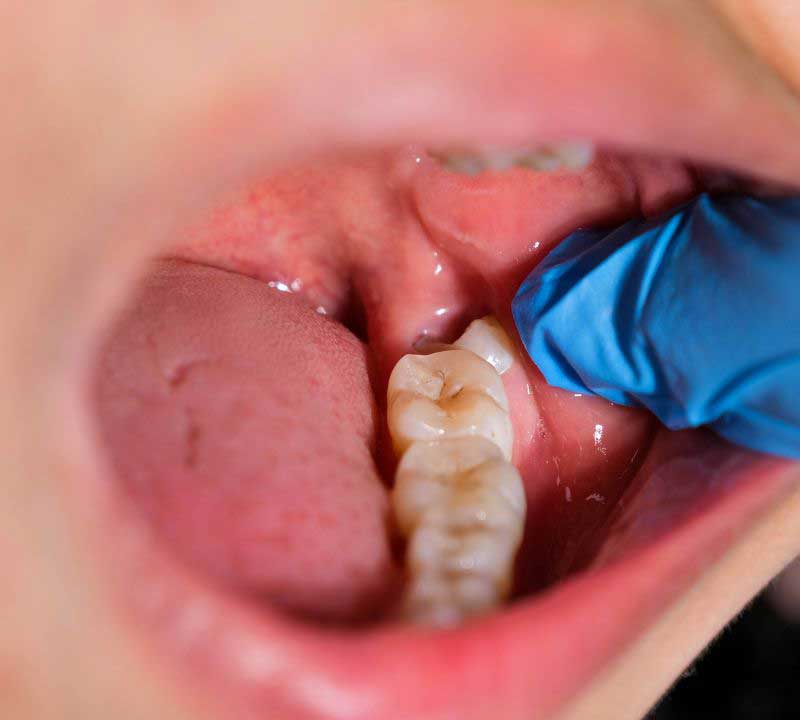How Wisdom Teeth Removal Aspendale Can Enhance Your Dental Health
How Wisdom Teeth Removal Aspendale Can Enhance Your Dental Health
Blog Article
Exploring Different Sedation Options for a Comfy Wisdom Teeth Removal Experience
The usage of sedation during such treatments has become progressively usual to alleviate stress and anxiety and discomfort. With an array of sedation alternatives available, from neighborhood anesthesia to general anesthetic, each technique uses varying levels of relaxation and pain control.
Regional Anesthesia
Regional anesthetic is a typically used technique for numbing particular areas of the mouth throughout wisdom teeth removal treatments. By administering an anesthetic, such as lidocaine, a dental practitioner can guarantee that the individual continues to be pain-free and comfortable throughout the extraction process. Local anesthesia works by temporarily blocking the nerves in the mouth, stopping them from sending discomfort signals to the brain. This allows the dental professional to execute the extraction without creating any type of discomfort to the individual.
Among the main benefits of local anesthesia is its targeted numbing result, which means that just the details area being treated is affected. This local method minimizes the risk of systemic negative effects and enables for a quicker recovery post-procedure. Furthermore, neighborhood anesthesia is taken into consideration to be a routine and secure method in dentistry, with very little dangers involved when carried out by an experienced specialist.
Nitrous Oxide
Nitrous oxide, frequently understood as giggling gas, is a form of sedation often used in dentistry to help individuals unwind throughout dental procedures. This sedation alternative permits the individual to stay conscious and responsive throughout the treatment while feeling at convenience and comfortable.
Once the mask is eliminated, the impacts of the gas put on off promptly, permitting individuals to resume their typical tasks without remaining sedative effects. Nitrous oxide is appropriate for individuals of all ages, making it a functional sedation alternative for wisdom teeth extractions and other dental treatments.
Oral Sedation
Oral sedation, a medicinal technique employed in dentistry, entails the administration of sedative medicines by mouth to generate an unwinded state during oral treatments. The medications prescribed for oral sedation belong to a course of medicines called benzodiazepines, which have sedative, anxiolytic, and amnesic buildings.
One of the primary advantages of oral sedation is its ease of management. Unlike intravenous sedation, oral sedation does not call for injections or needles, making it an extra comfortable alternative for people with a concern of needles. In addition, dental sedation is considered efficient and secure when provided by experienced dental specialists. It is essential for clients to comply with pre-operative directions supplied by their dental expert, such as abstaining from consuming or consuming alcohol before the procedure to guarantee the sedative drug works as meant.
IV Sedation
Carried out intravenously by skilled medical experts, IV sedation is an effective method used to generate a regulated state of deep leisure and unfamiliarity throughout dental procedures. Unlike oral sedation, which can be unpredictable in its effects, IV sedation enables specific control over the level of sedation, making it a perfect option for intricate procedures like wisdom teeth removals.
During IV sedation, a sedative medicine is delivered directly right into the blood stream through a blood vessel, allowing it to work promptly and successfully. This technique ensures that the patient remains comfy and uninformed of the treatment while still maintaining essential functions such as breathing and heart price.
Among the primary benefits of IV sedation is its ability to give a deeper level of sedation compared to various other approaches, making it particularly suitable for people with high have a peek at this website levels of stress and anxiety or those going through substantial oral work (wisdom teeth removal aspendale). Additionally, the impacts of IV sedation commonly disappear slowly after the treatment, minimizing the likelihood of grogginess or lingering side results. Overall, IV sedation provides a effective and risk-free choice for ensuring a comfy and trouble-free experience during knowledge teeth extraction

General Anesthesia
Having talked about the advantages of IV sedation for wisdom teeth extraction, the utilization of general anesthesia gives an alternative option for patients calling for a much deeper degree of unfamiliarity during oral procedures. General anesthesia generates a controlled state of unconsciousness, making certain the individual really feels no discomfort or pain during the extraction process. This approach is especially beneficial for people with extreme dental stress and anxiety, facility medical requirements, or those going through several extractions concurrently.
General anesthetic is provided by an experienced anesthesiologist that closely checks the person's vital original site signs throughout the procedure. It involves making use of intravenous medicines or inhaled gases to cause a state of unfamiliarity. While under general anesthetic, the individual will not recognize the surgical procedure, experience any discomfort, or have any type of recollection of the treatment later.
Although basic anesthetic is risk-free when carried out by qualified professionals, it lugs a somewhat greater danger compared to various other sedation choices - wisdom teeth removal aspendale. Patients considering basic anesthesia for knowledge teeth removal should go over the possible threats and advantages with their dentist or dental surgeon to make an his response educated decision based on their private requirements and case history

Conclusion
Finally, various sedation alternatives are readily available to ensure a comfortable knowledge teeth removal experience. Regional anesthetic is commonly used for numbing the specific area, while nitrous oxide provides leisure and discomfort alleviation. Oral sedation and IV sedation offer much deeper degrees of leisure, depending upon the patient's requirements. General anesthesia can be made use of for more complex instances. It is essential to talk to your dental professional or oral doctor to identify the most appropriate sedation choice for your procedure.
Nitrous oxide is appropriate for clients of all ages, making it a versatile sedation option for wisdom teeth extractions and other oral procedures.

Report this page